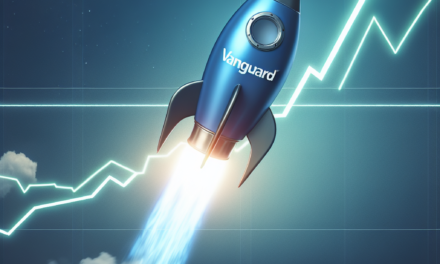“Unlock Your Potential: Mark Cuban’s Timeless Trio for Career Triumph”
Introduction
Mark Cuban, the renowned entrepreneur and owner of the Dallas Mavericks, has consistently emphasized the importance of certain timeless skills that are crucial for career success. In his various public appearances and writings, Cuban highlights three key skills that he believes are essential for anyone looking to excel in their professional life: adaptability, continuous learning, and effective communication. These skills, according to Cuban, not only help individuals navigate the ever-evolving job market but also empower them to seize opportunities and overcome challenges in their careers. By mastering these timeless abilities, professionals can enhance their value in any industry and achieve long-term success.
Understanding Mark Cuban’s Perspective on Timeless Career Skills
Mark Cuban, the renowned entrepreneur and owner of the Dallas Mavericks, has long been a vocal advocate for the development of essential skills that transcend the ever-evolving job market. In a world where technological advancements and industry shifts are constant, Cuban emphasizes the importance of cultivating timeless skills that remain relevant regardless of the changes in the professional landscape. His insights offer valuable guidance for individuals seeking to achieve long-term career success.
To begin with, Cuban underscores the significance of effective communication. In any professional setting, the ability to convey ideas clearly and persuasively is indispensable. Whether it involves articulating a vision to a team, negotiating with stakeholders, or simply engaging in everyday interactions, communication is the cornerstone of successful relationships and collaborations. Cuban believes that honing this skill not only enhances one’s ability to lead but also fosters an environment where ideas can be exchanged freely and constructively. As industries become more interconnected, the demand for individuals who can bridge gaps through effective communication continues to grow, making it a timeless asset in any career.
In addition to communication, Cuban highlights the importance of adaptability. The modern workplace is characterized by rapid changes, driven by technological innovations and shifting market demands. Consequently, the ability to adapt to new circumstances and learn continuously is crucial. Cuban argues that those who embrace change and view challenges as opportunities for growth are better positioned to thrive in their careers. Adaptability involves a willingness to acquire new skills, pivot strategies, and remain open-minded in the face of uncertainty. By cultivating this skill, individuals can navigate the complexities of the professional world with resilience and confidence.
Furthermore, Cuban emphasizes the value of critical thinking. In an era inundated with information, the ability to analyze data, evaluate evidence, and make informed decisions is more important than ever. Critical thinking enables individuals to approach problems systematically, consider multiple perspectives, and arrive at solutions that are both innovative and practical. Cuban asserts that this skill is essential for anyone aspiring to lead or make impactful contributions within their organization. By fostering a mindset that prioritizes analysis and reflection, professionals can enhance their problem-solving capabilities and drive meaningful change.
Transitioning from these individual skills, it is important to recognize how they collectively contribute to career success. Effective communication, adaptability, and critical thinking are not isolated competencies; rather, they are interconnected and mutually reinforcing. For instance, adaptability enhances communication by enabling individuals to tailor their messages to diverse audiences and contexts. Similarly, critical thinking supports adaptability by equipping individuals with the tools to assess new situations and devise appropriate responses. Together, these skills form a robust foundation that empowers individuals to excel in their careers, regardless of the specific industry or role.
In conclusion, Mark Cuban’s perspective on timeless career skills offers a valuable framework for navigating the complexities of the modern professional landscape. By prioritizing effective communication, adaptability, and critical thinking, individuals can position themselves for sustained success. As the world continues to evolve, these skills remain constant, providing a reliable compass for those seeking to achieve their career aspirations. Cuban’s insights serve as a reminder that while industries may change, the core competencies that drive success endure, underscoring the importance of investing in skills that stand the test of time.
The Importance of Adaptability in Mark Cuban’s Career Success
Mark Cuban, a renowned entrepreneur and investor, has long been a vocal advocate for the development of essential skills that transcend industry boundaries and technological advancements. Among the myriad of skills that professionals can cultivate, Cuban emphasizes three timeless ones that he believes are crucial for career success: adaptability, communication, and critical thinking. These skills not only enhance individual performance but also contribute significantly to organizational growth and innovation. In particular, adaptability stands out as a cornerstone of Cuban’s own career success, illustrating its importance in navigating the ever-evolving business landscape.
Adaptability, as Cuban often highlights, is the ability to adjust to new conditions and embrace change with a positive mindset. In today’s fast-paced world, where technological advancements and market dynamics are in constant flux, the capacity to adapt is more critical than ever. Cuban’s career trajectory exemplifies this skill, as he has successfully transitioned across various industries, from software and entertainment to sports and media. His willingness to embrace change and learn from new experiences has allowed him to seize opportunities that others might overlook. This adaptability not only fuels personal growth but also positions individuals to contribute meaningfully to their organizations.
Moreover, adaptability is closely linked to the ability to learn continuously. Cuban frequently underscores the importance of lifelong learning, urging professionals to remain curious and open to acquiring new knowledge. In a world where information is abundant and readily accessible, those who can quickly assimilate new concepts and apply them effectively are better equipped to tackle challenges and drive innovation. By fostering a culture of learning and adaptability, organizations can remain competitive and resilient in the face of disruption.
Transitioning to the next skill, communication is another timeless attribute that Cuban champions. Effective communication is essential for conveying ideas, building relationships, and facilitating collaboration. In Cuban’s view, the ability to articulate thoughts clearly and persuasively is a powerful tool that can influence decision-making and inspire action. Whether negotiating deals, leading teams, or engaging with stakeholders, strong communication skills enable individuals to navigate complex situations and achieve desired outcomes. Furthermore, in an increasingly interconnected world, the ability to communicate across diverse cultures and platforms is invaluable, enhancing both personal and organizational success.
In addition to adaptability and communication, critical thinking is a skill that Cuban regards as indispensable. Critical thinking involves analyzing information objectively, evaluating different perspectives, and making informed decisions. In an era characterized by information overload and rapid change, the ability to think critically is crucial for distinguishing between valuable insights and noise. Cuban’s success in identifying lucrative business opportunities and making strategic investments can be attributed, in part, to his adeptness at critical thinking. By cultivating this skill, professionals can enhance their problem-solving capabilities and contribute to more effective decision-making processes within their organizations.
In conclusion, Mark Cuban’s emphasis on adaptability, communication, and critical thinking underscores the enduring relevance of these skills in achieving career success. As the business environment continues to evolve, individuals who master these skills will be better positioned to navigate challenges, seize opportunities, and drive innovation. By prioritizing the development of these timeless attributes, professionals can not only enhance their own career prospects but also contribute to the long-term success of their organizations.
How Mark Cuban Emphasizes Communication as a Key Skill
In the ever-evolving landscape of professional success, Mark Cuban, the renowned entrepreneur and owner of the Dallas Mavericks, has consistently emphasized the importance of certain timeless skills that transcend industry boundaries. Among these, communication stands out as a pivotal skill that Cuban believes is essential for career advancement and success. His insights into communication are not only relevant but also crucial for individuals seeking to navigate the complexities of the modern workplace.
Mark Cuban’s emphasis on communication stems from his understanding that it is the foundation upon which all other skills are built. Effective communication enables individuals to convey their ideas clearly, collaborate with others, and build strong professional relationships. Cuban often highlights that the ability to articulate thoughts and ideas in a coherent manner is indispensable, regardless of one’s field or position. This skill is not limited to verbal exchanges but extends to written communication, which is equally important in today’s digital age.
Moreover, Cuban underscores the significance of active listening as a component of effective communication. He argues that listening is not merely about hearing words but involves understanding the underlying message and emotions being conveyed. By honing this skill, professionals can better respond to the needs and concerns of colleagues, clients, and stakeholders, thereby fostering a more collaborative and productive work environment. Cuban’s perspective aligns with the growing recognition that empathy and emotional intelligence are integral to successful communication.
Transitioning from the importance of communication, Cuban also highlights the role of adaptability in career success. In a world characterized by rapid technological advancements and shifting market dynamics, the ability to adapt one’s communication style to different contexts and audiences is invaluable. Cuban advises professionals to remain open to feedback and continuously refine their communication strategies to meet the demands of diverse situations. This adaptability not only enhances one’s effectiveness in conveying messages but also demonstrates a willingness to grow and evolve, qualities that are highly regarded in any professional setting.
Furthermore, Cuban emphasizes the power of storytelling as a communication tool. He believes that the ability to weave narratives that resonate with audiences can significantly impact one’s ability to influence and persuade. Storytelling, according to Cuban, is not just about sharing experiences but about creating connections and inspiring action. By mastering this skill, professionals can engage their audience on a deeper level, making their messages more memorable and impactful.
In addition to communication, Cuban identifies two other timeless skills: critical thinking and a strong work ethic. However, he consistently returns to communication as the cornerstone of these skills. Critical thinking, for instance, is enhanced by the ability to communicate complex ideas clearly and logically. Similarly, a strong work ethic is often demonstrated through consistent and effective communication with team members and supervisors.
In conclusion, Mark Cuban’s emphasis on communication as a key skill for career success is both insightful and practical. By focusing on clear articulation, active listening, adaptability, and storytelling, professionals can enhance their ability to connect with others and achieve their career goals. As Cuban’s insights suggest, mastering the art of communication is not just a means to an end but a lifelong journey that can unlock countless opportunities in the professional world.
Problem-Solving: A Timeless Skill Highlighted by Mark Cuban

In the ever-evolving landscape of the modern workplace, the ability to adapt and thrive amidst constant change is paramount. Mark Cuban, a renowned entrepreneur and investor, has consistently emphasized the importance of certain timeless skills that remain relevant regardless of industry shifts or technological advancements. Among these, problem-solving stands out as a critical competency that Cuban believes is indispensable for career success. This skill, deeply rooted in analytical thinking and creativity, enables individuals to navigate complex challenges and devise effective solutions, thereby enhancing their value in any professional setting.
Problem-solving, as highlighted by Cuban, is not merely about finding quick fixes to immediate issues. Instead, it involves a comprehensive approach that requires understanding the root causes of a problem, evaluating potential solutions, and implementing strategies that lead to sustainable outcomes. This process demands a high level of critical thinking, where individuals must assess various factors, weigh the pros and cons of different approaches, and anticipate potential consequences. By honing this skill, professionals can not only address current challenges but also prevent future issues, thereby contributing to the long-term success of their organizations.
Moreover, Cuban underscores the importance of creativity in problem-solving. In a world where conventional solutions may no longer suffice, the ability to think outside the box becomes crucial. Creative problem-solving involves looking at problems from different perspectives, challenging existing assumptions, and exploring innovative ideas that may not have been considered before. This approach not only leads to unique solutions but also fosters a culture of innovation within organizations. By encouraging creative thinking, companies can stay ahead of the competition and adapt to changing market demands more effectively.
In addition to creativity, Cuban also highlights the significance of collaboration in the problem-solving process. While individual efforts are important, complex problems often require diverse perspectives and expertise. Collaborative problem-solving brings together individuals with different skills and backgrounds, allowing for a more comprehensive analysis of the issue at hand. Through effective communication and teamwork, professionals can leverage each other’s strengths, share insights, and develop more robust solutions. This collaborative approach not only enhances the quality of the solutions but also builds a sense of camaraderie and mutual respect among team members.
Furthermore, Cuban points out that problem-solving is closely linked to decision-making. Once potential solutions have been identified, individuals must make informed decisions about which course of action to pursue. This requires a careful evaluation of the available options, considering both short-term and long-term implications. Effective decision-making is a skill that can be developed through experience and reflection, enabling professionals to make choices that align with their goals and values. By integrating problem-solving with sound decision-making, individuals can navigate their careers with confidence and purpose.
In conclusion, Mark Cuban’s emphasis on problem-solving as a timeless skill underscores its critical role in achieving career success. By cultivating analytical thinking, creativity, collaboration, and decision-making, professionals can effectively address challenges and drive positive change within their organizations. As the workplace continues to evolve, these skills will remain essential, empowering individuals to adapt, innovate, and thrive in any environment. Through continuous learning and practice, problem-solving can become a powerful tool for personal and professional growth, ensuring long-term success in an ever-changing world.
Mark Cuban’s Insights on Continuous Learning for Career Growth
Mark Cuban, the renowned entrepreneur and owner of the Dallas Mavericks, has long been an advocate for continuous learning as a cornerstone of career success. In a rapidly evolving job market, where technological advancements and shifting economic landscapes are the norms, Cuban emphasizes the importance of adaptability and lifelong learning. He identifies three timeless skills that he believes are crucial for anyone looking to thrive in their career: communication, critical thinking, and the ability to learn new skills.
Firstly, communication is a fundamental skill that Cuban highlights as essential for career growth. In any professional setting, the ability to convey ideas clearly and effectively is invaluable. Whether it is through writing, speaking, or digital communication, being able to articulate thoughts and concepts can set individuals apart in their careers. Cuban argues that strong communication skills not only facilitate better teamwork and collaboration but also enhance one’s ability to lead and influence others. As businesses become more global and interconnected, the demand for professionals who can bridge cultural and linguistic gaps continues to grow. Therefore, honing communication skills is a timeless investment that can yield significant returns throughout one’s career.
Transitioning to the next skill, critical thinking is another area that Cuban believes is indispensable. In an age where information is abundant and readily accessible, the ability to analyze, evaluate, and synthesize information is more important than ever. Critical thinking enables individuals to make informed decisions, solve complex problems, and innovate in their respective fields. Cuban stresses that this skill is not just about having the right answers but about asking the right questions. By cultivating a mindset that is curious and open to new perspectives, professionals can navigate challenges more effectively and contribute to their organizations in meaningful ways. As industries continue to evolve, those who can think critically will be better equipped to adapt and thrive.
Furthermore, Cuban underscores the importance of the ability to learn new skills as a key driver of career success. In today’s fast-paced world, where technological advancements can render certain skills obsolete, the capacity to learn and adapt is crucial. Cuban advises professionals to embrace a growth mindset, where they view challenges as opportunities for development rather than obstacles. By continuously seeking out new knowledge and experiences, individuals can remain relevant and competitive in their careers. This proactive approach to learning not only enhances one’s skill set but also demonstrates a commitment to personal and professional growth, which is highly valued by employers.
In conclusion, Mark Cuban’s insights on continuous learning for career growth emphasize the significance of communication, critical thinking, and the ability to learn new skills. These timeless skills serve as a foundation for success in any career, enabling individuals to navigate the complexities of the modern job market. By prioritizing these areas of development, professionals can position themselves for long-term success and fulfillment in their careers. As Cuban aptly points out, the journey of learning is never complete, and those who embrace it will find themselves better prepared to seize the opportunities that lie ahead.
The Role of Networking in Mark Cuban’s Professional Journey
Mark Cuban, a renowned entrepreneur and investor, has often emphasized the importance of certain timeless skills that have significantly contributed to his career success. Among these skills, networking stands out as a crucial element that has played a pivotal role in his professional journey. Understanding the impact of networking on Cuban’s career provides valuable insights into how this skill can be leveraged for success in any field.
Networking, in its essence, is about building and maintaining relationships that can offer mutual benefits. For Mark Cuban, networking was not merely about expanding his contact list but about creating meaningful connections that could lead to collaborative opportunities. Early in his career, Cuban recognized the value of surrounding himself with individuals who were not only knowledgeable but also willing to share their insights and experiences. This approach allowed him to gain diverse perspectives and learn from the successes and failures of others, thereby accelerating his own growth.
Moreover, Cuban’s networking strategy was not confined to traditional business settings. He understood that opportunities could arise in the most unexpected places, and thus, he remained open to engaging with people from various backgrounds and industries. This openness enabled him to tap into a wide array of resources and ideas, which proved instrumental in his ventures. For instance, his involvement in the tech industry was significantly bolstered by connections he made with innovators and thought leaders who provided him with the latest trends and technological advancements.
In addition to expanding his knowledge base, networking also played a critical role in Cuban’s ability to identify and seize opportunities. By maintaining a robust network, he was often among the first to learn about emerging trends and potential investments. This proactive approach allowed him to make informed decisions and stay ahead of the competition. Furthermore, his network served as a support system, offering guidance and advice during challenging times, which is invaluable for any entrepreneur navigating the complexities of the business world.
Transitioning from the benefits of networking to its practical application, Cuban’s journey illustrates that effective networking requires authenticity and reciprocity. He has consistently advocated for building genuine relationships based on trust and mutual respect. Rather than approaching networking with a transactional mindset, Cuban emphasizes the importance of contributing value to others. By offering assistance, sharing knowledge, and supporting the endeavors of his contacts, he has cultivated a network that is both extensive and loyal.
Additionally, Cuban’s experience underscores the significance of adaptability in networking. As industries evolve and new technologies emerge, the ability to adapt one’s networking strategies is crucial. Cuban has demonstrated this adaptability by leveraging digital platforms and social media to connect with a broader audience. This approach not only enhances his visibility but also allows him to engage with a diverse range of individuals who can offer fresh insights and opportunities.
In conclusion, Mark Cuban’s professional journey highlights the indispensable role of networking in achieving career success. By building meaningful relationships, staying informed about industry trends, and maintaining an adaptable approach, Cuban has effectively utilized networking to propel his ventures forward. His experience serves as a testament to the power of networking as a timeless skill that, when executed with authenticity and reciprocity, can open doors to endless possibilities and drive sustained success in any professional endeavor.
Mark Cuban’s Advice on Balancing Innovation and Practicality in Careers
Mark Cuban, the renowned entrepreneur and owner of the Dallas Mavericks, has long been a vocal advocate for innovation and practicality in the professional realm. His insights into career success often emphasize the importance of balancing these two seemingly opposing forces. In a rapidly evolving job market, Cuban identifies three timeless skills that he believes are crucial for achieving and maintaining career success: adaptability, communication, and critical thinking. These skills, he argues, are not only essential for navigating the complexities of modern work environments but also serve as a foundation for personal and professional growth.
To begin with, adaptability is a skill that Cuban frequently highlights as indispensable. In an era where technological advancements and market dynamics are constantly shifting, the ability to adapt to new situations and challenges is more important than ever. Cuban suggests that professionals who can quickly learn and apply new skills, adjust to changing circumstances, and embrace new technologies are better positioned to thrive. This adaptability allows individuals to remain relevant and competitive, even as industries undergo significant transformations. Moreover, it fosters a mindset of continuous learning, which is vital for long-term career development.
Transitioning to the next skill, communication is another cornerstone of Cuban’s philosophy on career success. Effective communication is not merely about conveying information; it involves active listening, empathy, and the ability to articulate ideas clearly and persuasively. Cuban emphasizes that strong communication skills are essential for building relationships, collaborating with colleagues, and leading teams. In a world where remote work and digital communication are becoming increasingly prevalent, the ability to connect with others and convey messages effectively is more critical than ever. By honing their communication skills, professionals can enhance their ability to influence and inspire others, thereby increasing their impact within their organizations.
Furthermore, critical thinking is a skill that Cuban regards as vital for navigating the complexities of the modern workplace. In an environment where information is abundant and often overwhelming, the ability to analyze data, evaluate evidence, and make informed decisions is crucial. Cuban believes that critical thinking enables individuals to solve problems creatively and strategically, allowing them to identify opportunities and mitigate risks. This skill is particularly important in innovation-driven fields, where the ability to think outside the box and challenge conventional wisdom can lead to groundbreaking discoveries and advancements.
In conclusion, Mark Cuban’s emphasis on adaptability, communication, and critical thinking underscores the importance of balancing innovation with practicality in one’s career. These timeless skills not only equip individuals to navigate the challenges of today’s dynamic job market but also empower them to seize opportunities for growth and advancement. By cultivating these skills, professionals can enhance their ability to innovate while remaining grounded in practical realities. As Cuban often points out, the key to career success lies in the ability to adapt to change, communicate effectively, and think critically. These skills, when combined, create a powerful toolkit that can propel individuals toward achieving their professional goals and making a meaningful impact in their chosen fields.
Q&A
1. **Question:** What is the first timeless skill highlighted by Mark Cuban for career success?
– **Answer:** The first timeless skill is the ability to communicate effectively.
2. **Question:** What is the second skill mentioned by Mark Cuban?
– **Answer:** The second skill is the ability to sell or persuade others.
3. **Question:** What is the third skill emphasized by Mark Cuban?
– **Answer:** The third skill is having a strong work ethic.
4. **Question:** Why does Mark Cuban believe communication is a crucial skill?
– **Answer:** Communication is crucial because it enables individuals to convey ideas clearly and collaborate effectively with others.
5. **Question:** How does the ability to sell contribute to career success, according to Mark Cuban?
– **Answer:** The ability to sell is important because it involves persuading others and is essential in almost every aspect of business and personal interactions.
6. **Question:** What role does a strong work ethic play in achieving career success?
– **Answer:** A strong work ethic is vital as it drives individuals to put in the necessary effort and dedication to achieve their goals and stand out in their careers.
7. **Question:** How can these skills be applied in a modern work environment?
– **Answer:** These skills can be applied by effectively communicating with team members, persuading stakeholders or clients, and consistently demonstrating dedication and hard work in all tasks.
Conclusion
Mark Cuban emphasizes three timeless skills crucial for career success: adaptability, continuous learning, and effective communication. Adaptability allows individuals to thrive in changing environments, while continuous learning ensures they remain relevant and innovative. Effective communication facilitates collaboration and influence, making these skills essential for long-term professional achievement.





